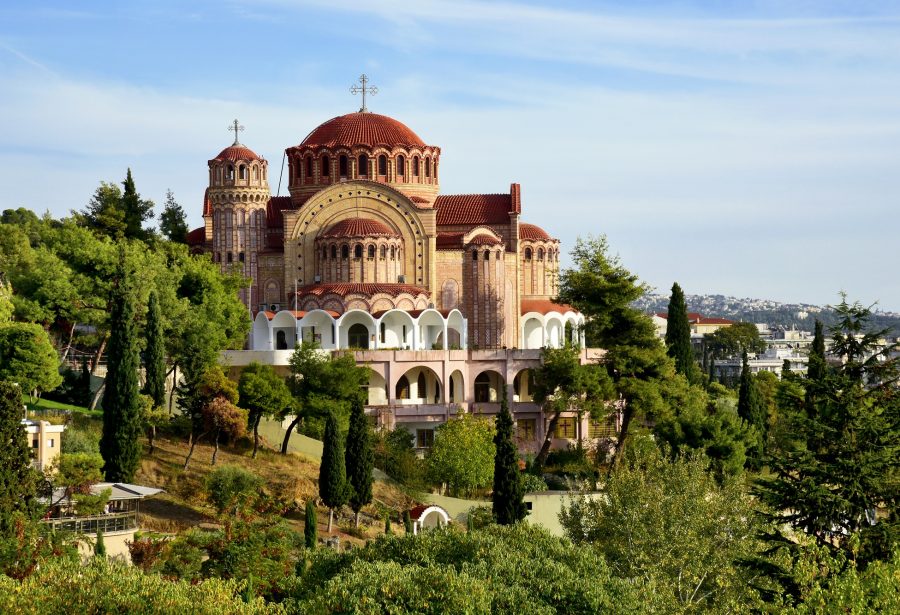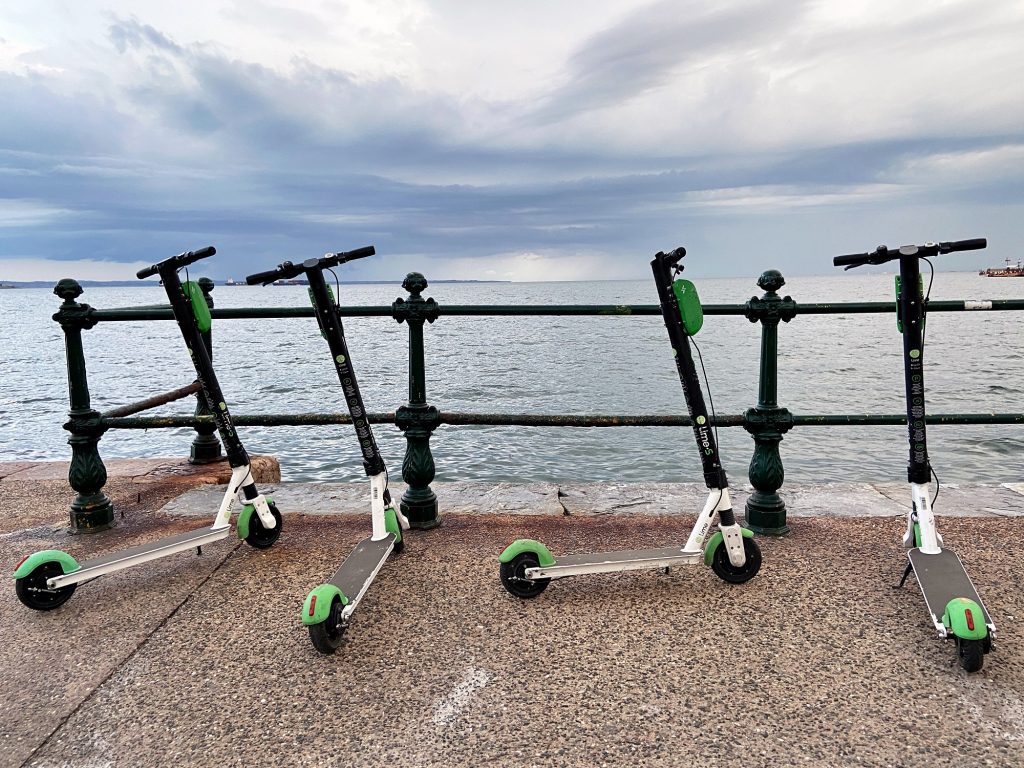
MOMENTUM key puzzle piece in larger Thessaloniki transition plan
In the framework of our summer interviews, we spoke with Dimitra Kartsakli recently. As traffic engineer and responsible for the pilot implementation in Thessaloniki, she gave us the latest insights into the current challenges and progress of MOMENTUM actions in the Greek city. Together with her team of Roula Lazaridou, civil engineer, Nikolaos Mesimeris, architect engineer, as well as Dr. Georgios Papastergios, who is dealing with management and administrative issues, she has achieved several significant milestones during this year. As one of four MOMENTUM cities, Thessaloniki plays a major role in the development of the MOMENTUM ‘decision support tool’, which will be presented on 14 September during a webinar (register here).
Dimitra, which emerging mobility solution (and the respective integration) does your city analyse?
The city of Thessaloniki desires to invest in new sustainable mobility solutions as it faces major mobility challenges. Thanks to the MOMENTUM project, we have a fantastic opportunity to test and design new mobility systems based on the decision support tool. Demand Responsive systems (DRT), micromobility, as well as ride- and bike- sharing schemes are the solutions to be examined.
Specifically, as for micromobility, we will define specific parking spots across the city to structure the new solutions. This means that all e-scooter users will have to park their vehicle in determined areas after their ride. In that way, the municipality of Thessaloniki intends to promote micromobility without upsetting other road users. Moreover, the implementation of a DRT service in other areas with a lack of public transport access will be examined.
Let’s give the reader an update; what has happened in 2021?
We ran various projects that are related to mobility such as the provision of the municipality with electric vehicles (cars and trucks) for covering its needs by exploiting two EU-funded programs. Furthermore, we are currently constructing a new bike lane on Papafi street, a major road in the heart of Thessaloniki, which will boost the already existing system of bike lanes in our city, which are currently renovated thanks to a €1.3 million support from the European Regional Development Fund.
Additionally, Thessaloniki has updated its Sustainable Urban Mobility Plan (SUMP), expanding its time horizons to 2025 and 2030. Additionally, a plan for the promotion of a charging infrastructure for electric vehicles will be set, which will be supported by the Greek ‘Green Fund’.
The municipality is also participating in an Interreg project related to mobility called ‘ClimobCity 2050’. The main goal of the project for Thessaloniki is to reduce greenhouse gas emissions 42% by 2030, compared to 1990, and become climate-neutral in 2050. This will be achieved by measures that promote a modal shift from private car use to more sustainable solutions (active mobility and public transport). Also, further efforts will be taken to promote e-mobility and smart parking management.
We can observe that Thessaloniki is doing a lot, but what are your immediate milestones for this summer and autumn?
We are about to finalise the decision-support tool in the next few weeks. It will support the municipality in the decision making for the mobility issues related to the new transport modes such as the on-demand systems including DRT and ride sharing and the shared mobility such as bike sharing, e-scooters sharing, car sharing or motorcycle sharing.
Also, the study related to the location of the e-scooters stations that is performed by CERTH/HIT will be implemented. The study is based on a methodology for the implementation of the optimal solution that will combine the responsiveness in the maximum demand and the more efficient management of the public urban space.
We are also looking forward to all the plans related to the European Mobility Week from 16 to 22 of September during which we will be able to show our achievements in the framework of the two projects of MOMENTUM and ClimobCity 2050.
Last but not least, the Thessaloniki International Fair (TIF) will be held from 11-19 September, which will host significant entries from all over Greece highlighting new technologies and digital service upgrades, entrepreneurship, agri-food production, but also sustainable development and innovation, which are all important motors for our economy. We invite the readers to check out this year’s agenda.



